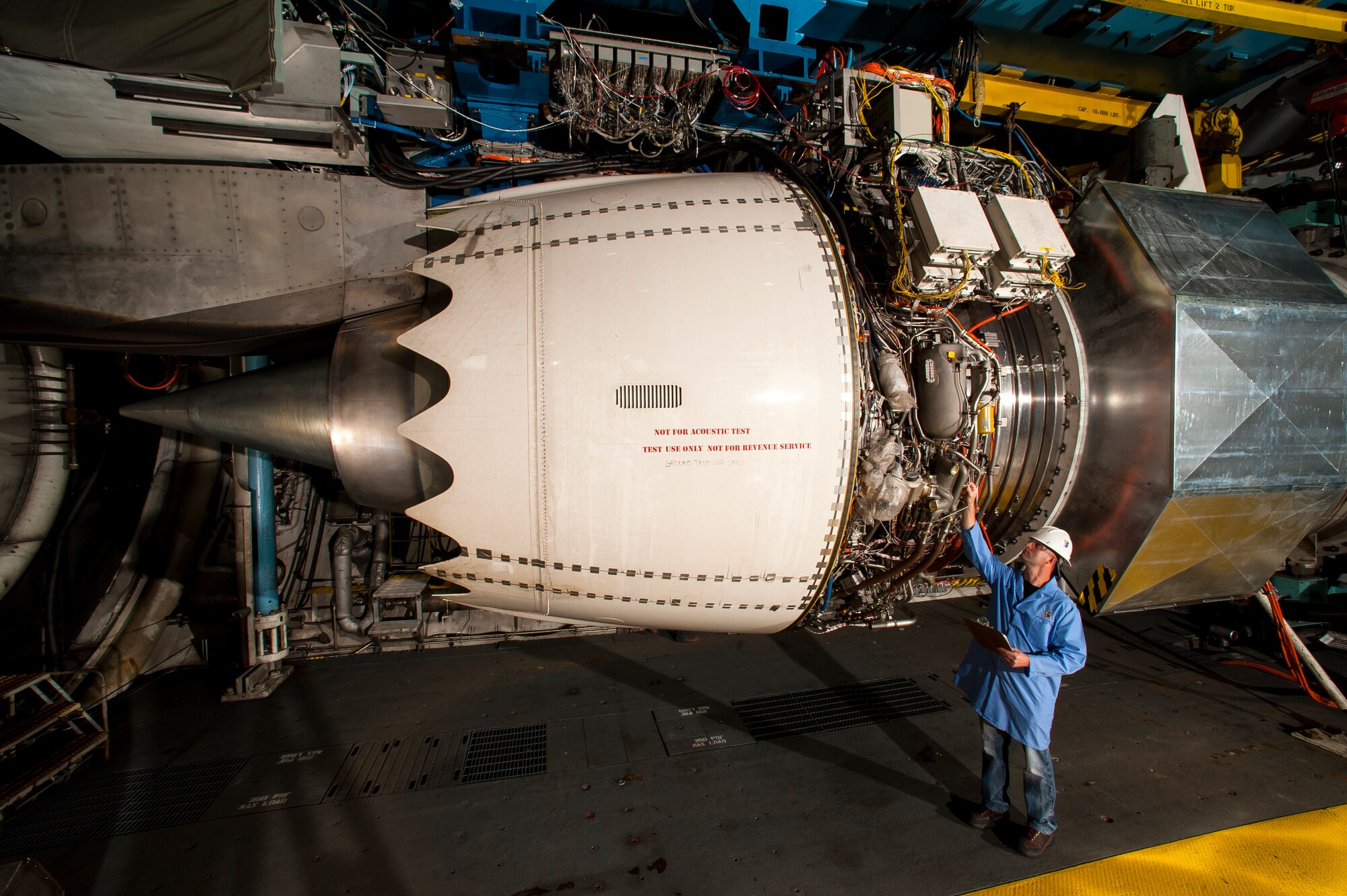EN 374 Engine Endurance Testing (150/300 Hour Runs)
The EN 374 standard is a crucial part of aerospace and aviation quality assurance, ensuring that propulsion systems meet the rigorous demands placed upon them in high-stress environments. This form of testing is specifically designed to evaluate the durability and reliability of engine components over extended periods. By simulating real-world flight conditions, this endurance test provides engineers with valuable insights into potential weaknesses within a system before it enters operational use.
During EN 374 testing, engines undergo continuous operation for either 150 or 300 hours, depending on the specific requirements of the project. This extended period allows us to observe how various components behave under sustained stress conditions, including temperature fluctuations, fuel efficiency, and overall performance metrics. The test also examines the engine’s ability to withstand vibrations and mechanical strain during prolonged operation.
The testing process begins with careful preparation of each engine specimen according to international standards (ISO 15247-3). This involves ensuring that all parts are correctly assembled and properly lubricated for optimal performance throughout the duration of the test. Once prepared, engines are placed into our state-of-the-art facility equipped with advanced monitoring tools capable of capturing detailed data points every second.
Throughout the test run, we closely monitor key parameters such as fuel consumption rates, temperature variations within different sections of the engine, and overall operational efficiency levels. Additionally, noise levels generated by each engine are recorded to ensure they meet strict regulatory limits imposed by aviation authorities worldwide. At regular intervals during the test cycle, engineers conduct visual inspections to check for any signs of wear or damage that might indicate issues with specific components.
The results from these tests play a critical role in determining whether an engine meets industry standards and can be certified as safe for commercial use. If discrepancies are found between expected outcomes versus actual measurements taken during testing, further analysis may be required to identify root causes of any failures or deviations observed. Our team works closely with clients throughout this process to ensure all necessary steps are followed until final approval is granted.
Our laboratory adheres strictly to both EN 374 and other relevant international standards when conducting these tests, ensuring complete accuracy in our findings. By leveraging cutting-edge technology combined with decades of experience within the aerospace sector, we offer unparalleled expertise in providing reliable results that contribute significantly towards maintaining high safety standards across all aspects of propulsion system design.
Scope and Methodology
| Parameter | Description |
|---|---|
| Test Duration | 150 or 300 hours, depending on client specifications. |
| Operating Conditions | Simulated flight conditions including variable temperatures and fuel types. |
| Data Collection | Continuous monitoring of engine performance metrics via advanced sensors. |
| Inspection Frequency | Visual inspections at regular intervals during the test run. |
In addition to the detailed parameters outlined above, our methodology also involves rigorous preparation of each specimen prior to testing. This includes thorough cleaning and inspection processes followed by precise assembly procedures designed to meet strict tolerances specified in EN 374. Once assembled, engines are carefully placed into our controlled environment chamber where they undergo continuous operation under simulated flight conditions.
Customer Impact and Satisfaction
The results of EN 374 testing have a direct impact on customer satisfaction by ensuring that only the highest quality propulsion systems are approved for commercial use. By providing accurate data about engine performance over extended periods, our tests help manufacturers identify potential issues early in development cycles, allowing them to make necessary improvements before products reach market.
Our focus on delivering reliable results has earned us a reputation as one of the leading laboratories in this field. Clients appreciate our attention to detail and commitment to meeting both current regulatory requirements and future expectations within their respective industries. We pride ourselves on maintaining strong relationships with all partners involved in ensuring continued compliance with international standards.
Customer feedback consistently highlights several key benefits derived from working with us:
- Accurate measurement of engine performance over extended periods
- Rigorous adherence to international standards throughout the testing process
- Timely delivery of reports containing comprehensive analysis results
- Expert guidance provided by experienced engineers during all stages of testing and evaluation
In summary, our EN 374 engine endurance tests contribute significantly towards enhancing overall customer satisfaction by delivering reliable, accurate data that supports informed decision-making processes. Our dedication to quality ensures that only the best engines pass these stringent assessments, ultimately contributing to safer skies for everyone involved in aviation.
Use Cases and Application Examples
- New Engine Design Validation: Early-stage testing helps identify design flaws before large-scale production begins.
- In-Service Performance Monitoring: Continuous monitoring allows for proactive maintenance scheduling to prevent unexpected failures during operation.
- Regulatory Compliance: Ensures that new engines meet all applicable regulatory requirements, reducing risk of non-compliance penalties.
- R&D Innovation: Provides valuable data points necessary for refining future generations of propulsion systems.
In each case scenario mentioned above, EN 374 testing plays a critical role in ensuring that engines perform reliably under real-world conditions. This type of comprehensive evaluation is essential not only for maintaining compliance with industry regulations but also for fostering innovation within the aerospace sector. By leveraging this data, manufacturers can continually improve their products while adhering to strict standards set forth by regulatory bodies.





